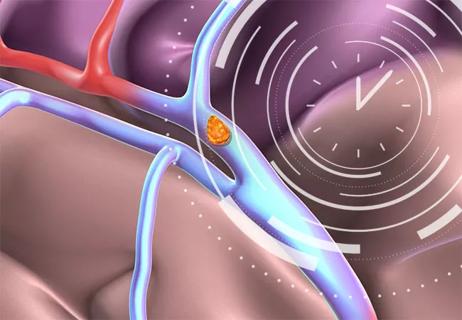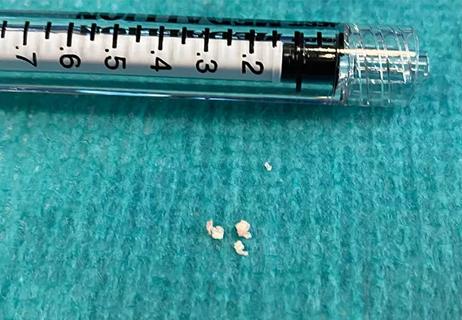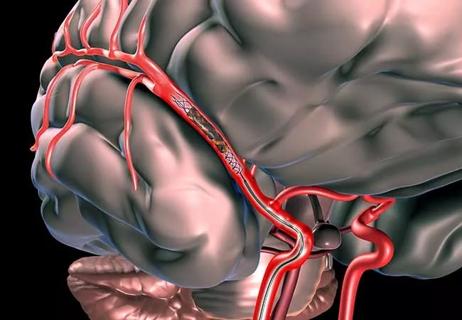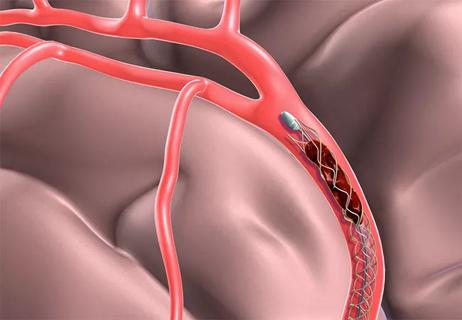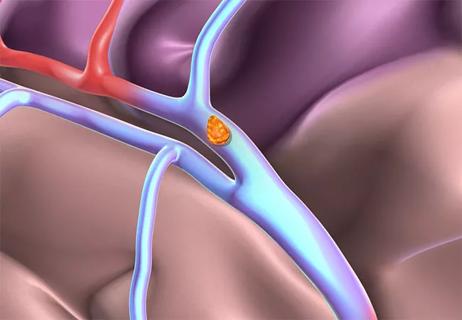Tag debug info: client: {"assets":{},"datasets":{},"live":{},"projects":{},"users":{},"observable":{"assets":{},"datasets":{},"live":{},"projects":{},"users":{}}} Now: 1770472901808 Cache Key: cqdTagPageBySlug:thrombectomy fetchCache[cqdTagPageBySlug:thrombectomy].expirationTime: falsey fetchCache[cqdTagPageBySlug:thrombectomy]. seconds remaining: falsey All fetchCache expiration times: -- Key: cqdNotFoundPage, seconds remaining: 8300 -- Key: cqdTagPageBySlug:cryoablation, seconds remaining: -12359 -- Key: cqdPostsByTag:cqd-migrated-tag-21839,1,10, seconds remaining: -12283 -- Key: cqdTagPageBySlug:niraj-varma, seconds remaining: -11605 -- Key: cqdPostsByTag:cqd-migrated-tag-2690,1,10, seconds remaining: -11455 -- Key: cqdTagPageBySlug:margot-eves, seconds remaining: -11303 -- Key: cqdPostsByTag:cqd-migrated-tag-21602,1,10, seconds remaining: -11235 -- Key: cqdTagPageBySlug:gabapentin, seconds remaining: -10972 -- Key: cqdPostsByTag:cqd-migrated-tag-16829,1,10, seconds remaining: -10898 -- Key: cqdTagPageBySlug:perinatal-certification, seconds remaining: -10667 -- Key: cqdPostsByTag:cqd-migrated-tag-26724,1,10, seconds remaining: -10594 -- Key: cqdTagPageBySlug:parent-training, seconds remaining: -10014 -- Key: cqdPostsByTag:cqd-migrated-tag-20309,1,10, seconds remaining: -9947 -- Key: cqdTagPageBySlug:robert-lorenz, seconds remaining: -8399 -- Key: cqdPostsByTag:cqd-migrated-tag-18967,1,10, seconds remaining: -8343 -- Key: cqdTagPageBySlug:shared-governance-model, seconds remaining: -7126 -- Key: cqdPostsByTag:cqd-migrated-tag-16766,1,10, seconds remaining: -7076 -- Key: cqdTagPageBySlug:mendelian-randomization, seconds remaining: -6669 -- Key: cqdPostsByTag:cqd-migrated-tag-19769,1,10, seconds remaining: -6609 -- Key: cqdTagPageBySlug:glenoid-component-shift, seconds remaining: -5641 -- Key: cqdPostsByTag:cqd-migrated-tag-19542,1,10, seconds remaining: -5571 -- Key: cqdTagPageBySlug:fibromyalgia, seconds remaining: -2754 -- Key: cqdPostsByTag:cqd-migrated-tag-3810,1,10, seconds remaining: -2709 -- Key: cqdTagPageBySlug:propofol, seconds remaining: -1741 -- Key: cqdPostsByTag:cqd-migrated-tag-21715,1,10, seconds remaining: -1688 -- Key: cqdTagPageBySlug:capsular-contracture, seconds remaining: -295 -- Key: cqdPostsByTag:cqd-migrated-tag-20509,1,10, seconds remaining: -245 -- Key: cqdTagPageBySlug:cied, seconds remaining: -23 -- Key: cqdPostsByTag:cqd-migrated-tag-23720,1,10, seconds remaining: 28 -- Key: cqdTagPageBySlug:melatonin, seconds remaining: 292 -- Key: cqdPostsByTag:cqd-migrated-tag-22810,1,10, seconds remaining: 342 -- Key: cqdTagPageBySlug:urodynamic-studies, seconds remaining: 521 -- Key: cqdPostsByTag:cqd-migrated-tag-18084,1,10, seconds remaining: 588 -- Key: cqdTagPageBySlug:mark-lowe, seconds remaining: 920 -- Key: cqdPostsByTag:cqd-migrated-tag-284,1,10, seconds remaining: 967 -- Key: cqdTagPageBySlug:peripheral-immunity, seconds remaining: 1163 -- Key: cqdPostsByTag:cqd-migrated-tag-25960,1,10, seconds remaining: 1209 -- Key: cqdTagPageBySlug:setbp1, seconds remaining: 1751 -- Key: cqdPostsByTag:cqd-migrated-tag-930,1,10, seconds remaining: 1783 -- Key: cqdTagPageBySlug:patrick-vargo, seconds remaining: 2737 -- Key: cqdPostsByTag:cqd-migrated-tag-22380,1,10, seconds remaining: 2781 -- Key: cqdTagPageBySlug:pelvis, seconds remaining: 3086 -- Key: cqdPostsByTag:cqd-migrated-tag-25556,1,10, seconds remaining: 3146 -- Key: cqdTagPageBySlug:menopause, seconds remaining: 3346 -- Key: cqdPostsByTag:cqd-migrated-tag-18992,1,10, seconds remaining: 3401 -- Key: cqdTagPageBySlug:dna, seconds remaining: 3809 -- Key: cqdPostsByTag:cqd-migrated-tag-1190,1,10, seconds remaining: 3859 -- Key: cqdTagPageBySlug:jasn, seconds remaining: 4260 -- Key: cqdPostsByTag:cqd-migrated-tag-23212,1,10, seconds remaining: 4310 -- Key: cqdTagPageBySlug:ablation, seconds remaining: 5469 -- Key: cqdPostsByTag:cqd-migrated-tag-2081,1,10, seconds remaining: 5519 -- Key: cqdTagPageBySlug:dermatologic-surgery, seconds remaining: 5904 -- Key: cqdPostsByTag:cqd-migrated-tag-20008,1,10, seconds remaining: 5961 -- Key: cqdTagPageBySlug:regionalization, seconds remaining: 6117 -- Key: cqdPostsByTag:cqd-migrated-tag-21317,1,10, seconds remaining: 6161 -- Key: cqdTagPageBySlug:diverticulitis, seconds remaining: 6353 -- Key: cqdPostsByTag:cqd-migrated-tag-17049,1,10, seconds remaining: 6410 -- Key: cqdTagPageBySlug:advanced-practice-nursing, seconds remaining: 6573 -- Key: cqdPostsByTag:cqd-migrated-tag-16928,1,10, seconds remaining: 6626 -- Key: cqdTagPageBySlug:multipoint-pacing, seconds remaining: 6922 -- Key: cqdPostsByTag:cqd-migrated-tag-4042,1,10, seconds remaining: 6969 -- Key: cqdTagPageBySlug:altfl, seconds remaining: 7421 -- Key: cqdPostsByTag:cqd-migrated-tag-23798,1,10, seconds remaining: 7464 -- Key: cqdTagPageBySlug:nursing-analytics, seconds remaining: 8300 -- Key: cqdPostsByTag:cqd-migrated-tag-17158,1,10, seconds remaining: 8338 -- Key: cqdTagPageBySlug:accreditation, seconds remaining: 8636 -- Key: cqdPostsByTag:cqd-migrated-tag-21165,1,10, seconds remaining: 8684 -- Key: cqdTagPageBySlug:endemic, seconds remaining: 8818 -- Key: cqdPostsByTag:cqd-migrated-tag-24323,1,10, seconds remaining: 8871 -- Key: cqdTagPageBySlug:surface-capillaroscopy, seconds remaining: 9114 -- Key: cqdPostsByTag:cqd-migrated-tag-3720,1,10, seconds remaining: 9170 -- Key: cqdTagPageBySlug:polyangiitis, seconds remaining: 9567 -- Key: cqdPostsByTag:cqd-migrated-tag-606,1,10, seconds remaining: 9603 conditions: -- false, -- NA, -- NA, -- NA -- false Cache miss for key cqdTagPageBySlug:thrombectomy - retrieving from Sanity CCCache.dataFetchCount: 6437 Cache cleanup seconds remaining: 11601
Advertisement
Advertisement
IV thrombolysis should not be delayed because of planned thrombectomy
A perplexing presentation underscores the value of broadly collaborative care
Safety is focus of pilot study in a high-risk population
DEFUSE 3 results support lengthening treatment window in imaging-selected patients
Advertisement
Cleveland Clinic is a non-profit academic medical center. Advertising on our site helps support our mission. We do not endorse non-Cleveland Clinic products or services. Policy
One-year stroke mortality rate down by 18 percent over five years
Rendered: Sat Feb 07 2026 14:01:41 GMT+0000 (Coordinated Universal Time)
9500 Euclid Avenue, Cleveland, Ohio 44195 |
800.223.2273 | ©
2026 Cleveland Clinic. All Rights Reserved.
